GFEI training for Sub-Saharan Africa shows the importance of integrated policy measures
12 December 2022
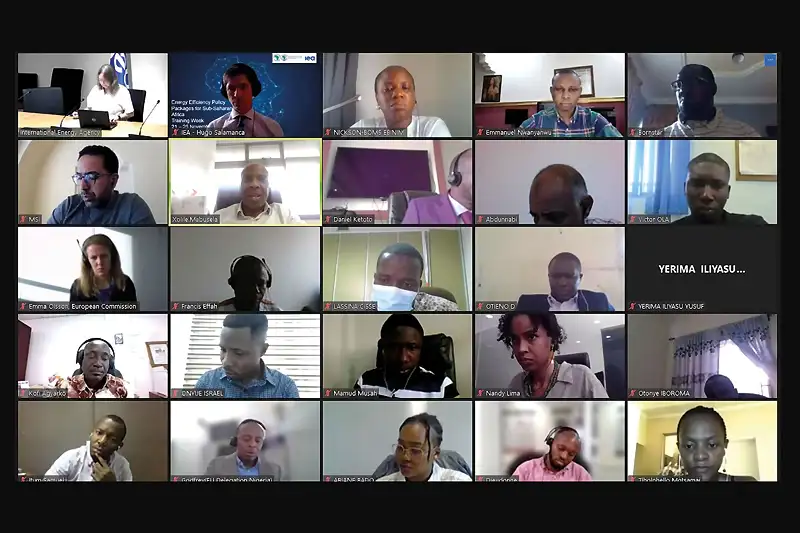
Combining policy measures is key to taking forward transport efficiency. The shift to more fuel efficient and zero emission vehicles is most effective when underpinned by a combination of policy measures. A recent training day organised by GFEI partner the International Energy Agency (IEA) and the Africa Development Bank (AfDB) helped take forward knowledge sharing around improving vehicle efficiency in sub-Saharan Africa.
The day was part of a training week running from 21-25 November 2022 which provided nearly 300 regional participants with a detailed introduction to energy efficiency policy packages, followed by sector-based sessions focused on appliances, buildings, industry and transport. Throughout the week expert speakers shared international and regional experiences on how to address energy efficiency in policymaking, with insights from South Africa, Kenya, Ghana, ECOWAS, Nigeria, India, the European Union, Australia, the United Nations Industrial Development Organisation and the United Nations Environment Programme.
The transport session explored the role of policy packages in ensuring greater coordination of regulation, information and incentive mechanisms to drive forward transport sector efficiency gains. Policy packages present a practical approach to policy design and implementation, where combinations of these three types of measures result in the most effective results. For example, recent analysis for Global Fuel Economy Initiative (GFEI) highlights that globally road freight efficiency can be doubled by 2050 with a dual policy approach that combines fuel economy standards and targeted logistical policies.
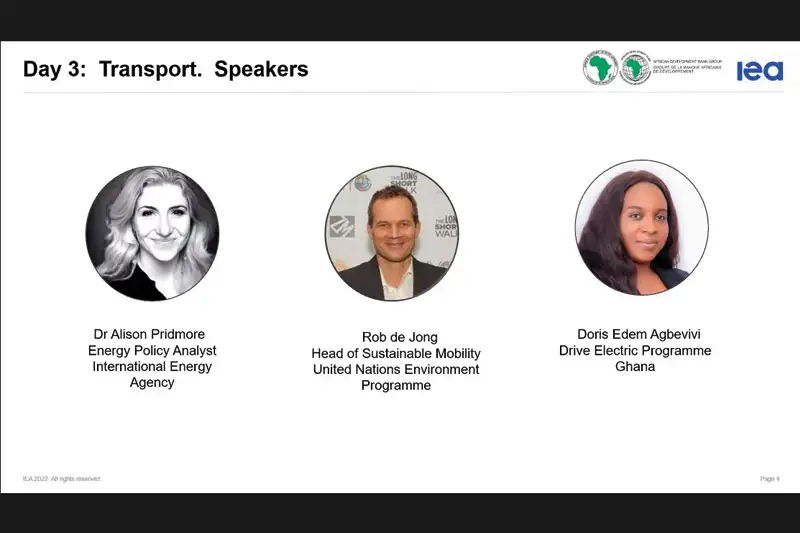
Dr Alison Pridmore, Energy Efficiency Analyst at the IEA, was joined by experts Rob de Jong of the United Nations Environment Programme (UNEP) and Doris Edem Agbevivi from the Drive Electric Initiative in Ghana, who shared international and regional experiences.
Coordinating measures that can address air quality issues whilst reducing carbon emissions and driving energy savings remains a huge challenge for policymakers. The experts discussed the merit of an integrated policy package approach, and what we can learn from experiences implementing policy package measures from around the world.
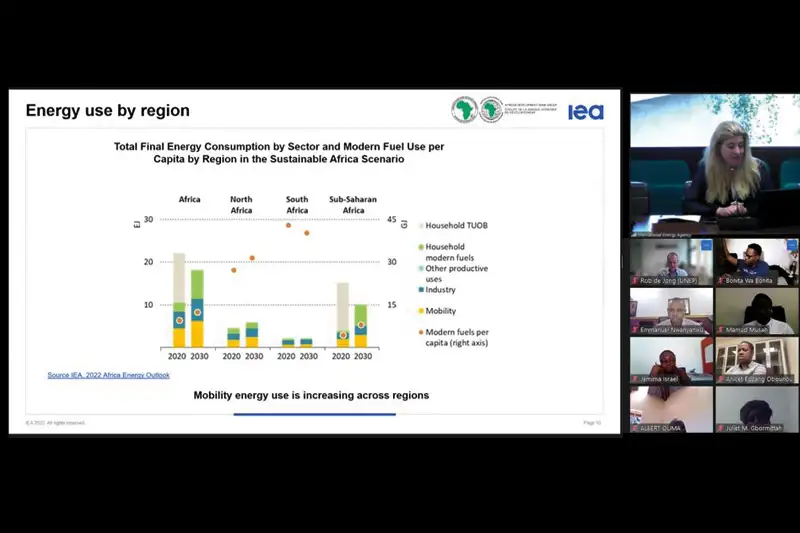
Rob de Jong presented a series of case studies highlighting how strong vehicle taxation schemes had been effective in encouraging consumers to purchase more efficient vehicles, and that combining this with awareness measures strengthened the impact further. Doris Edem Agbevivi emphasised the importance of engaging with stakeholders throughout the development and implementation of electric vehicle policies.
Online polls were used to engage with participants and field their perspectives on the key opportunities and challenges for energy efficiency across key sectors. Participants highlighted air quality improvements and emissions reductions as key benefits among others.
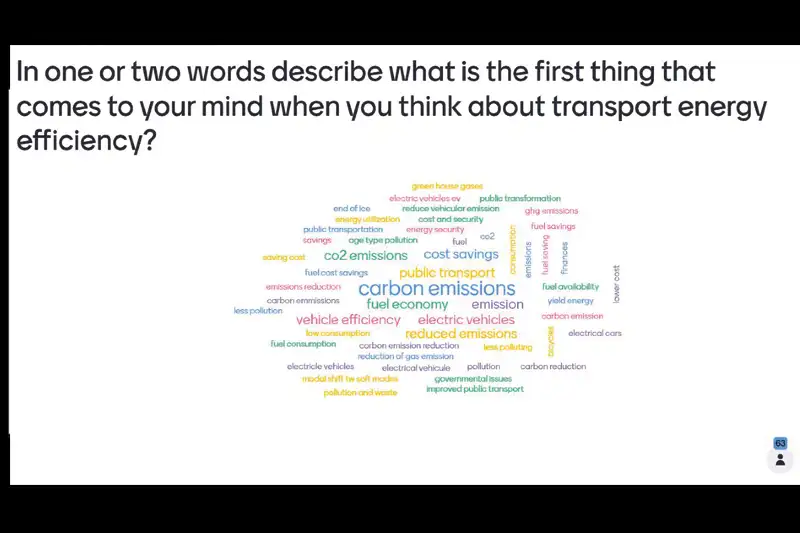
Energy efficiency has a critical role to play in addressing the global energy crisis, and can also deliver long-term multiple benefits through lowering energy costs and carbon emissions while supporting economic growth.
The IEA’s recently launched Africa Energy Outlook 2022 has highlighted the potential for energy efficiency within the transport sector. According to the report vehicle sales are projected to triple by 2030, including private cars, trucks and buses, the latter driven by policies to encourage public transport in cities and increased investment in transport infrastructure.
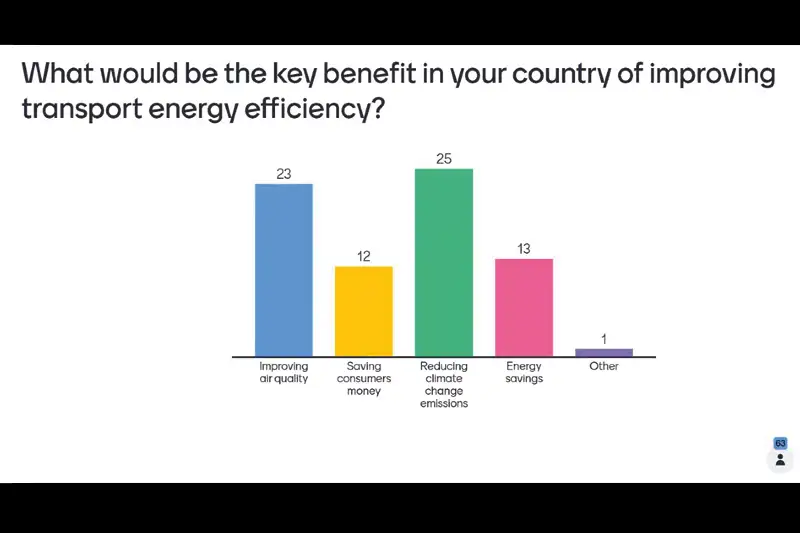
The training week took place just after the COP27 summit in Sharm el-Sheik, where the global energy crisis and growing impacts of climate change dominated global discourse for two weeks. Energy efficiency has a key role to play in addressing the dual energy and climate crises, but will require development of expertise in applying policy at a regional or local level.
”One of the objectives of the training is to welcome more people to the IEA’s energy efficiency family – so that we can all work together and support each other on driving effective energy efficiency policy. By expanding our global energy efficiency community we can ensure that new approaches, tools and best practices can be shared more widely, and that individuals across different regions have the resources in place to develop and implement effective policy package approaches. The breadth of examples we heard about this week are a testament to the incredible work going on both in Sub-Saharan Africa and around the world to drive forward energy efficiency, boosting energy savings, reducing costs and lowering emissions.” said Brian Motherway, Head of Energy Efficiency Division at the IEA.